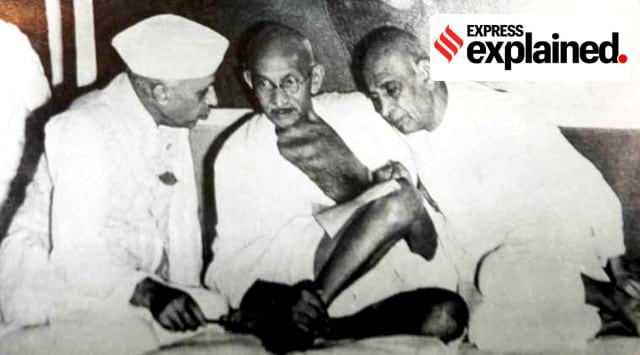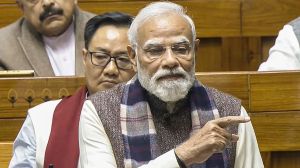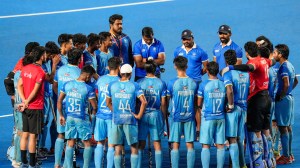Seventy-five years after M K Gandhi was assassinated on this day (January 30) his ideas and thoughts remain just as relevant and continue to be used in often partisan debates on aspects of India’s present-day democracy.
As part of their political rhetoric against the Congress, non-Congress politicians, including Narendra Modi, Amit Shah, Venkaiah Naidu and Jayalalithaa, have recalled that Gandhi believed the Congress should have been dissolved or disbanded after Independence.

In 2019, for example, the Prime Minister said: “Mahatma Gandhi had long ago realised that Congress has the maximum receiving capacity for all ailments. Hence then only he had called for disintegrating the Congress. ‘Congress Mukt Bharat’ is not my slogan, but I am just fulfilling the wish of Mahatma Gandhi.”
So, what did Gandhiji say about the Congress party?
Gandhi commented on the party’s functioning routinely. As early as his 1909 book ‘Hind Swaraj’, he conveyed his ideas through conversations with a fictional person who is critical of him. In the first chapter titled ‘The Congress & its Officials’, this critic says: “Young India seems to ignore the Congress. It is considered to be an instrument for perpetuating British Rule.”
In his response, Gandhi speaks about the contributions of A O Hume, the founder of the Congress, and Gopal Krishna Gokhale. He acknowledges that Congress leaders may not always be right, but the party served an important purpose for the anti-colonial movement.
He wrote, “The Congress brought together Indians from different parts of India, and enthused us with the idea of nationality… All I have to show is that the Congress gave us a foretaste of Home Rule. To deprive it of the honour is not proper, and for us to do so would not only be ungrateful, but retard the fulfillment of our object. To treat the Congress as an institution inimical to our growth as a nation would disable us from using that body.”
Did his views on the purpose of the Congress change subsequently?
In the 1940s, Gandhi’s views on what the Congress was to accomplish started to change, also because of the new, more urgent phase that the national movement had entered, and the goal of freedom seemed nearer. Gandhi held a suspicious view of power itself, and believed that the ‘real’ work of achieving Swaraj or self-rule was only through independent, decentralised action.
Story continues below this ad
“Congressmen aren’t sufficiently interested in constructive work,” he said. He also flagged issues of corruption brought on by power. “His limited experience told him that legislators and judges were too close to the machinery of power to check-and-balance the executive; only those outside the government could,” wrote biographer Louis Fischer in ‘The Life of Mahatma Gandhi’.
Did Gandhi really want the Congress to be dissolved?
The day before his assassination in 1948, Gandhi wrote a document on the direction he wanted the party to take. Now dubbed ‘His Last Will and Testament’, it envisaged a path for the Congress that was closely connected to his own philosophy.
He wrote: “Though split into two, India having attained political independence through means devised by the Indian National Congress, the Congress in its present shape and form, i.e., as a propaganda vehicle and parliamentary machine, has outlived its use.”
For Gandhi, the party’s purpose was served with the attainment of independence, therefore it needed to now focus on attaining social, moral and economic independence — in terms of its 700,000 villages as distinguished from its cities and towns, he wrote.
Story continues below this ad
“It must be kept out of unhealthy competition with political parties and communal bodies. For these and other similar reasons, the A.I.C.C. (All India Congress Committee) resolves to disband the existing Congress organisation and flower into a Lok Sevak Sangh (Society to Serve the People).”
This organisation was to consist of panchayat-like units, who would be present in villages and closely interact with villagers for achieving swaraj, along Gandhian lines. On workers’ duties, he said: “He shall keep a record of his work from day to day. He shall organise the villages so as to make them self-contained and self-supporting through their agriculture and handicrafts.”
Workers should wear khadi habitually, be teetotallers, reject untouchability, and have equal respect and regard for all religions and equality of opportunity and status, Gandhi said.
In sum, therefore, rather than a fundamental objection to the party, he wanted an evolution in the role of the organisation in line with the changing times and the tasks before it.








































